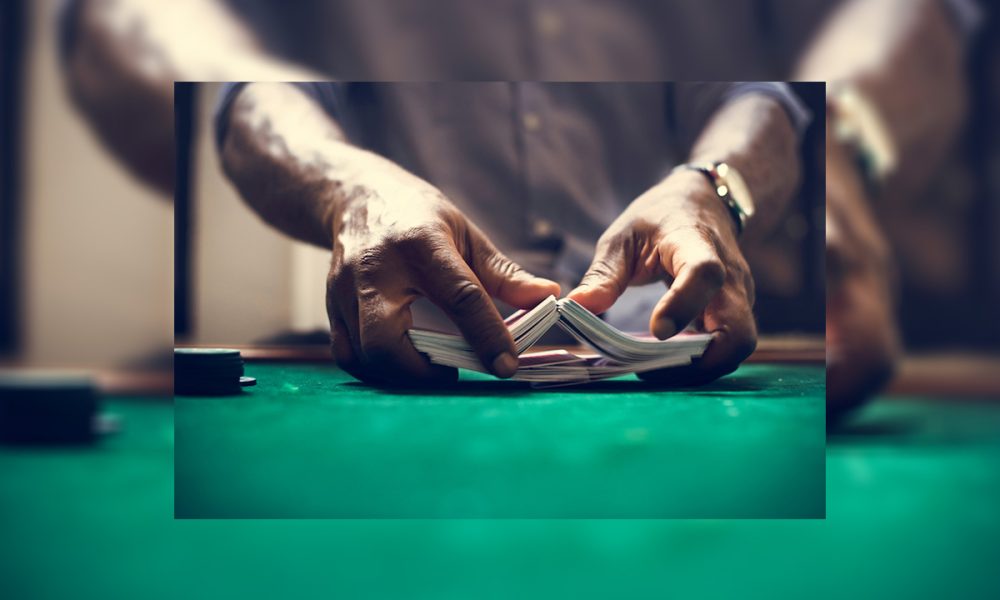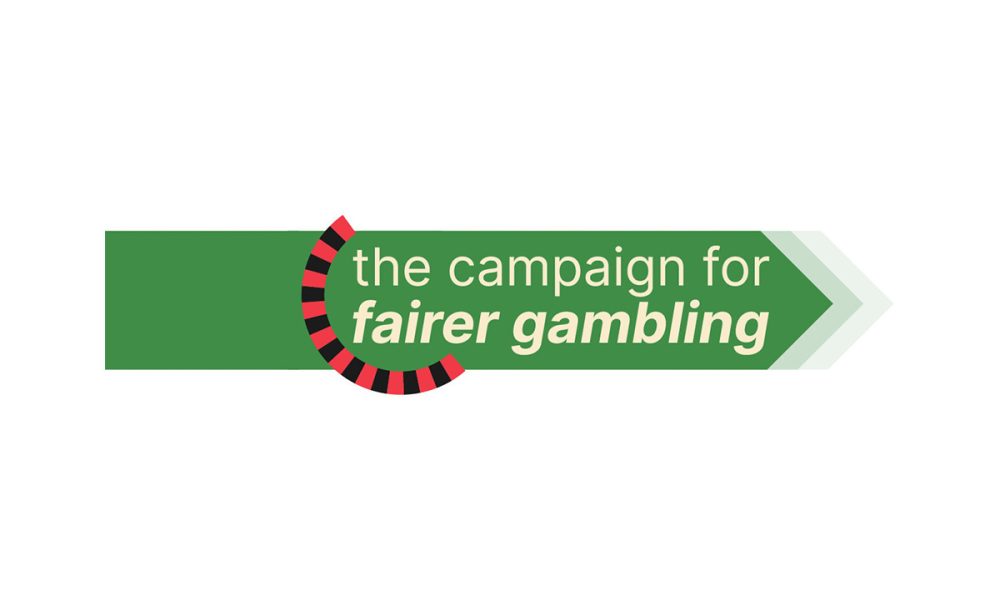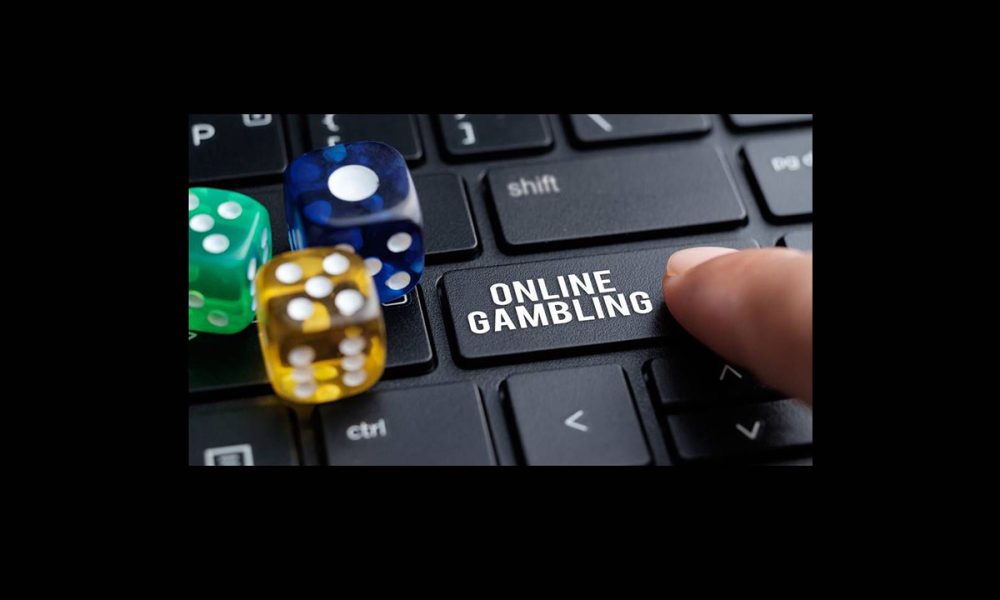

Campaign for Fairer Gambling
New report from CFG: While Tariffs Crash Markets, Illegal Gambling Bleeds Billions
Illegal online gambling operators now control 74% of the $90.1 billion U.S. online gambling marketplace, according to a new report from data intelligence platform Yield Sec, commissioned by the Campaign for Fairer Gambling (CFG). The report, USA National 2024, reveals that while legal online gambling revenues grew 36% last year, illegal revenues surged by 64% – nearly twice as fast.
The report reveals that 88% of U.S. online audiences are exposed to illegal gambling content, across platforms including search, social media, streaming, and apps. Despite the growth of legalized online sports betting and casino offerings in several states, illegal operators continue to outperform legal brands through price, product range, and aggressive promotions.
The report also reveals that illegal platforms don’t just reach more people – they engage them and retain more of their money. With 88% of U.S. audiences looking for gambling being exposed to illegal gambling content, and affiliates promoting illegal operators outnumbering legal ones by six to one, consumer engagement with illegal online gambling is deep and sustained.
Major events like the Super Bowl, March Madness, Copa America, and the Olympics in 2024 acted as recruitment gateways, driving spikes in traffic and allowing illegal operators to cross-sell profitable casino products and capture more of every consumer dollar. Product choice across illegals enhances their status to consumers as one-stop gambling shops: illegals feature all products in all states, including casino and popular predictor marketplaces which illegals have hijacked to feature events such as election and tariffs betting alongside sports and financials.
Derek Webb, founder of the Campaign for Fairer Gambling, said: “US legalization of internet gambling without a gameplan to tackle the illegal sector has been an unmitigated disaster. In California, where online gambling is illegal, the total population loss per capita for 2024 is $141. In comparison with New Jersey, where online sports and casino gambling are legal, the illegal loss per capita on sports is $103 and on casino is $169, being a total of $272, nearly twice as much as in California.
“Any pundit, commentator, legislator, regulator, lawyer or lobbyist selling legalization alone as a cure for illegal online gambling should be ashamed.”
Ismail Vali, Founder and CEO of Yield Sec, said: “Let’s not pin this on gambling regulators alone. Their job is to supervise the licensed industry, not to chase criminals who never applied for a license. Illegal gambling is everyone’s problem – operators, law enforcement, media companies, social platforms, and governments all have a role to play.
“At Yield Sec, we show every legal stakeholder how to identify, expose, and remove crime from the marketplace – because until that happens, it’s your money that’s being stolen. For America in 2025, it’s time to kick crime out of online gambling.”
Key findings in the Campaign for Fairer Gambling U.S.A National 2024 Report:
• 917 illegal online gambling operators actively targeting U.S. users, compared to just 95 legal ones
• 668 affiliates promoting illegal online gambling operators, versus 106 promoting legal brands
• 88% of U.S. online audiences are exposed to illegal gambling content
• Illegal operators generated $67.1 billion in revenue in 2024, compared to $23 billion by legal operators
• Illegal gambling revenue grew by 64% year-on-year, nearly double the growth of the legal sector (36%)
Yield Sec warns that 2025 marks a tipping point in the U.S. online gambling marketplace, unless actions are taken now against crime. CFG is calling on legislators, regulators, and all industry leaders to work together to protect consumers, safeguard state revenues, and curb crime.
The post New report from CFG: While Tariffs Crash Markets, Illegal Gambling Bleeds Billions appeared first on Gaming and Gambling Industry in the Americas.
Campaign for Fairer Gambling
Final CFG USA 2024 Online Gambling Report Confirms: Crime Wins After Years of Legalization

The Campaign for Fairer Gambling (CFG) has released 2024 CFG USA State Supplement #2: All States, the final report in its landmark CFG USA 2024 Series, warning that the rapid expansion of legal online gambling is fueling more gambling and higher consumer losses – all without displacing crime from the total marketplace.
The analysis, produced by technical marketplace intelligence platform Yield Sec, offers the most comprehensive national and state-by-state breakdown ever produced across the US online sports betting, casino, and poker marketplaces. It shows that states with more legal operators record the highest Gross Gambling Revenue (GGR) per capita as a percentage of income – but, illegal operators continue to dominate, with 74% of total GGR across US online gambling being stolen by crime during 2024.
In 2024, the total US online gambling marketplace was worth $90.1 billion, of which $67.1 billion (74%) was illegal. The illegal sector grew by 64% year-on-year, outpacing the legal sector’s 36% growth.
There are three states with legalized online sports betting where the market is below the average of 0.31% GGR per capita as a percentage of income for states with no legalization, being Oregon, Maine, and Arkansas. These states have operator numbers of Oregon 1, Maine 2, and Arkansas 3, for an average of 2, below the national average of 9.
There are three states with both legalized online sports betting and casino gaming where the market is below the average of 0.77% of GGR per capita as a percentage of income for states with legalization of online sports betting only, being Delaware, Rhode Island, and Connecticut. These states have operator numbers of Delaware 4, Rhode Island 2, and Connecticut 3 for an average of 3, below the national average of 14.
There is a pronounced correlation between having a small number of legal operators and lower GGR per capita as a percentage of income.
The proponents of legalization assert that having more legal operators is better for competition and implies that this will help reduce the size of the illegal sector. The evidence, contained in CFG reporting from years of monitoring and the most comprehensive study ever conducted upon the US online gambling marketplace at both the national and state levels, contradicts this assertion.
Derek Webb, Founder and Funder of CFG, said: “The onus is on the proponents of legalization to provide an explanation as to how they managed to get it so wrong – at the least, they should apologize to the legislators they influenced based on their misleading representations. There should now be a moratorium on state expansion until effective action reduces illegal revenues and enables effective control of online gambling marketplaces.”
Ismail Vali, founder and CEO of Yield Sec, added: “Decades of illegal online gambling in the USA were meant to end with legalization and regulation. The hope was simple: legal, licensed options in each state would ‘channelize’ the marketplace and eliminate illegal gambling. This has not happened.
“Seven years after state legalization began in 2018, the US online gambling marketplace remains a fortress of crime, and the zero-sum game hope that legalization and regulation would, on their own, remove crime, has failed. Illegal gambling isn’t one problem – it’s many. You can only control it through process – MPEO: Monitor, Police, Enforce, Optimize. Crime has now stolen hundreds of billions of dollars from American commerce and communities over more than three decades – it’s time to make this end.”
The post Final CFG USA 2024 Online Gambling Report Confirms: Crime Wins After Years of Legalization appeared first on Gaming and Gambling Industry in the Americas.
Campaign for Fairer Gambling
Crime Still Dominates U.S. Online Gambling – Legalization Increases Total Losses by 261%, Warns CFG

The Campaign for Fairer Gambling (CFG) releases a supplement to its USA National Online Gambling Report 2024 which exposed that illegal online gambling takes 74% of total gross gambling revenue (GGR) in America. Commissioned by CFG and produced by online market intelligence platform, Yield Sec, the supplement analyzes all 50 states according to their regulatory status and shows that state legalization of online gambling – without the reduction and removal of illegal online gambling – increases total losses for American consumers by up to 261%.
The supplement groups US states into one of three regulatory realities:
• States with no legal online gambling (e.g. California, Texas)
• States with one form of legal online gambling – sports betting (e.g. New York, Florida)
• States with all forms of legal online gambling – sports betting and casino (e.g. Michigan, New Jersey).
The CFG State Supplement #1 demonstrates the effect of GGR per capita (the total marketplace value for legal and illegal online gambling divided by population) as a percentage of average income 2024 to further illustrate the burden across American consumers:
Total online GGR (Legal + Illegal) per capita as a percentage of income:
– USA National: GGR per capita is 0.62% of average income
– States with no legal online sports betting or casino (e.g. California, Texas): GGR per capita is 0.31% of average income
– States with legal online sports betting only (e.g. New York, Florida): GGR per capita is 0.77% of average income
– States with both legal online sports betting and casino (e.g. Michigan, New Jersey): GGR per capita is 1.12% of average income.
The supplement data makes clear that legalization of online gambling, without enforcement against illegal online gambling, increases the total loss and harm. When states legalize online sports betting only, GGR per capita as a percentage of income increases by 148% (from 0.31% to 0.77%). When both online sports betting and casino are legalized, it jumps by 261% (from 0.31% to 1.12%). If legalization truly replaced illegal gambling, the dominance of illegal gambling would diminish – but, the reality is that this is not a zero-sum game.
“Ohio is the alarm bell America needs to hear. Just one year after legalizing online sports betting in 2023, losses for Ohioans had already reached 1.33% of average income per capita to online gambling – the heaviest burden in the country, and more than twice the national average. Across the US, we’re not seeing illegal gambling being replaced, we’re simply seeing total consumer losses grow. In states with full legalization, losses are now 261% higher than where there’s no legal online gambling at all. This isn’t progress, it’s escalation,” states Derek Webb, Founder of CFG.
Ismail Vali, founder and CEO of Yield Sec, added: “Yield Sec surveillance shows that the legal industry is being undermined at every turn by criminal competitors who offer greater value, bigger bonuses, and lower barriers, since they pay no tax, no licensing and exploit all forms of regulation in the absence of sincere monitoring, policing and enforcement against them.
“It is a vicious cycle: failing to deal with crime causes loss from theft. Across the country, legalization without enforcement against illegal operators, only gives criminals another edge. The outcome is predictable: legal revenue collapses, tax income shrinks, and criminals walk away with hundreds of millions. If states want to make the money they should, enforcement against crime must come first and always – to reduce and remove illegal gambling’s appeal and availability.”
The post Crime Still Dominates U.S. Online Gambling – Legalization Increases Total Losses by 261%, Warns CFG appeared first on Gaming and Gambling Industry in the Americas.
Campaign for Fairer Gambling
U.S. Online Gambling Losses to Pass $1 Trillion by 2028

Recent estimates by the World Health Organization (WHO) project the legal global online gambling market will reach $700 billion annually by 2028. Meanwhile, YieldSec, commissioned by the Campaign for Fairer Gambling (CFG), has estimated that the U.S. illegal online gambling market was valued at over $40 billion in 2023. Considering the market has been active for nearly 25 years, U.S. consumers and the economy are projected to lose at least $1 trillion to online gambling by 2028.
Derek Webb, founder and funder of the Campaign for Fairer Gambling, commented: “With this latest health guidance from the WHO, the prospect of class action litigation, predicated on duty of care liability, against the legal online gambling market has increased. This is especially relevant where consumers have been induced into gambling beyond their means. Operators should already implement robust ‘know-your-customer’ procedures to ensure that funds used are not laundered or derived from criminal activity.”
The concept of “Duty of Care,” a legal obligation to prevent harm caused by negligence, has seen limited application in litigation against gambling operators. However, DraftKings is currently the subject of a lawsuit alleging that a gambler’s addiction was “nurtured” by the company.
Online gambling operators often use sign-up offers and ongoing bonuses to attract customers and intensify gambling activity. These tactics not only draw novices into gambling but also push casual gamblers toward riskier, excessive consumption.
Research on the Total Consumption Model shows that increased gambling consumption at a population level leads to higher individual harm. When legal online gambling is combined with illegal gambling, overall consumption rises, further exacerbating harm.
The WHO emphasizes the need for universal, population-wide public health policies to combat gambling harm. Among the seven strategies it recommends is “ending gambling advertising, promotion, and sponsorship of sports and other cultural activities.”
Some state attorneys general have issued “cease and desist” letters to illegal operators, such as Bovada, a site licensed in Curacao. However, enforcement remains inconsistent. If Bovada exits a state, other illegal operators often step in to fill the void in the absence of rigorous federal enforcement.
Webb added: “States giving tax breaks to any form of gambling or gambling promotion should consider whether they are exposing themselves or their regulators to litigation risk. Legislators and regulators cannot continue to rely on the theory of responsible gambling, which shifts the burden of harm prevention onto individuals, while ignoring the WHO’s recommended strategies to control online gambling harm. Promoting legalization as a way to reduce gambling addiction or eliminate illegal gambling is misleading and unsustainable.”
-

 gaming3 years ago
gaming3 years agoODIN by 4Players: Immersive, state-of-the-art in-game audio launches into the next generation of gaming
-
EEG iGaming Directory9 years ago
iSoftBet continues to grow with new release Forest Mania
-
News8 years ago
Softbroke collaborates with Asia Live Tech for the expansion of the service line in the igaming market
-
News7 years ago
Super Bowl LIII: NFL Fans Can Bet on the #1 Sportsbook Review Site Betting-Super-Bowl.com, Providing Free Unbiased and Trusted News, Picks and Predictions
-
iGaming Industry8 years ago
Rick Meitzler appointed to the Indian Gaming Magazine Advisory Board for 2018
-
News7 years ago
REVEALED: Top eSports players set to earn $3.2 million in 2019
-
iGaming Industry8 years ago
French Senator raises Loot Boxes to France’s Gambling Regulator
-
News7 years ago
Exclusive Interview with Miklos Handa (Founder of the email marketing solutions, “MailMike.net”), speaker at Vienna International Gaming Expo 2018











